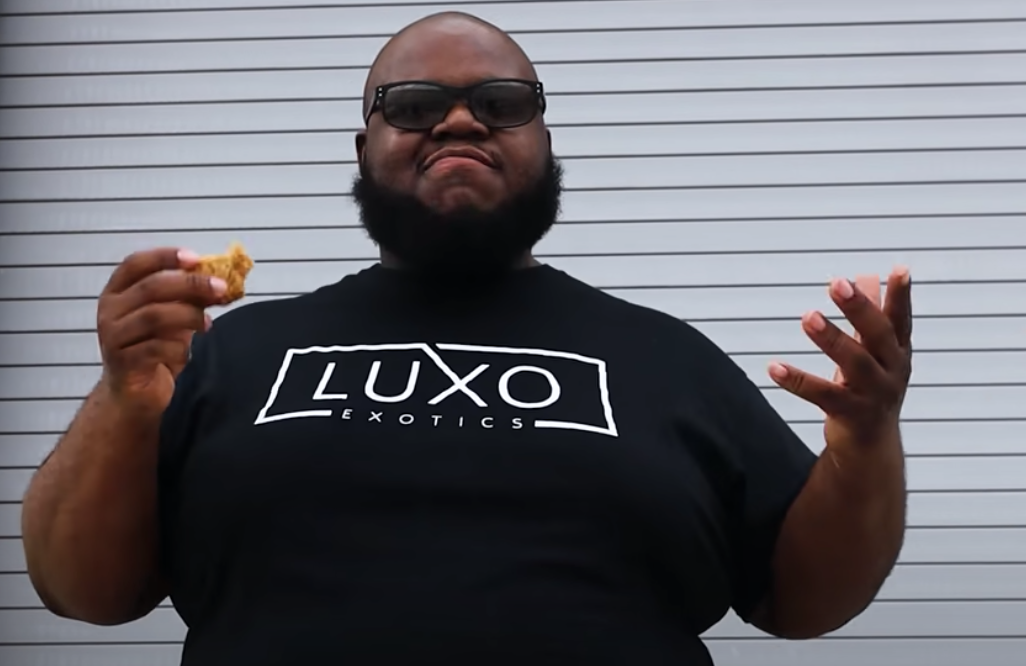
When a rapper so outlandish and energetic makes Sada Baby look calm on a track, it’s clear the artist has star potential. And when you learn this artist is an active USPS mailman, you can’t help but look at life and the people around you differently.
The rapper in question is Bfb Da Packman, and in the rarity of his come-up through embracing his working class status, stories like his might be more common in the future.
There are plenty of good pieces about Packman’s origins and his redeeming qualities as both a person and artist. He’s a Flint, Michigan native who lives in Houston, delivers mail for a living, and raps candidly about his children, weight, and sexual health with a hectic yet carefree style. But beyond the wild spectacle he creates, Bfb Da Packman’s career is a shining example of why attention should be divested from algorithm-approved artists and reinvested in the creatives we view as “ordinary” people.
In his interview with SayCheeseTV, Packman delivered another masterclass in candor. Along with more time to flesh out stories about legal troubles and catching gonorrhea, Packman opened up about his career development strategy. This included details about the revenue earned from YouTube videos, how he reinvests it, and an honest assessment of what it would take for him to quit his job.
It’s a circle. I built this relationship on principles, bro. I built this relationship on payin’ niggas…We up now. Theyon’t even need my money bro, but I still pay ’em.
– Bfb Da Packman on investing in his videographer and audio engineer
Since OShotYouFilmz became Packman’s go-to videographer three years ago, he has received 53 million views on his YouTube channel. An estimate of his YouTube ad revenue since then lands between $159,000 and $265,000 ($3-$5 per 1,000 views). A conservative estimate suggests Packman makes 50k a year off of music videos, but he refuses to ditch the gig with USPS until he’s absolutely sure music can comfortably sustain him.
Even as clients begin to recognize his face, Packman’s continued service as a mailman challenges the idea of “famous” as a different social class. By simply being himself, Packman could be spearheading an anti-celebrity movement of sorts. With the best creative resources now accessible to the general public, the next step in helping people independently contribute to the world is democratizing attention.
Packman’s rejection of “looking the part” as a rapper is refreshing. Hell, it could be revolutionary. The way he invests in people resembles a member-owned co-op business rather than a record label, and his extreme brand of realism is more inspiring than desirous raps about choosy women and expensive goods. Down to his deep appreciation for women built like their dads, Bfb Da Packman isn’t a regular dude who became a star—he’s a star because he’s a regular dude.
With such an accessible story and lifestyle, Bfb Da Packman is a model of success easier to grasp—therefore more valuable—than examples set by chart-topping artists. Many of the world’s biggest artists have amazing work ethics and unique offerings, but getting that big entails some luck, loss of agency, and dependence on major institutions. Packman doesn’t live glamorously, but all it takes is confidence, a perspective, and collaboration to have the fanbase and financial freedom he has.
While YouTube’s algorithm is responsible for getting the “Free Joe Exotic” video in front of millions, the success of Bfb Da Packman should encourage us to think more highly of our mailmen and women, school teachers, janitors, and other cast members in the film of life we view as extras. Not because they could end up rich and famous, but because a human being with gifts and a valuable perspective can be found anywhere.
[…] Zander (10 maggio 2021). “Bfb Da Packman dimostra che le stelle sono ovunque intorno a noi”. Attraverso la […]